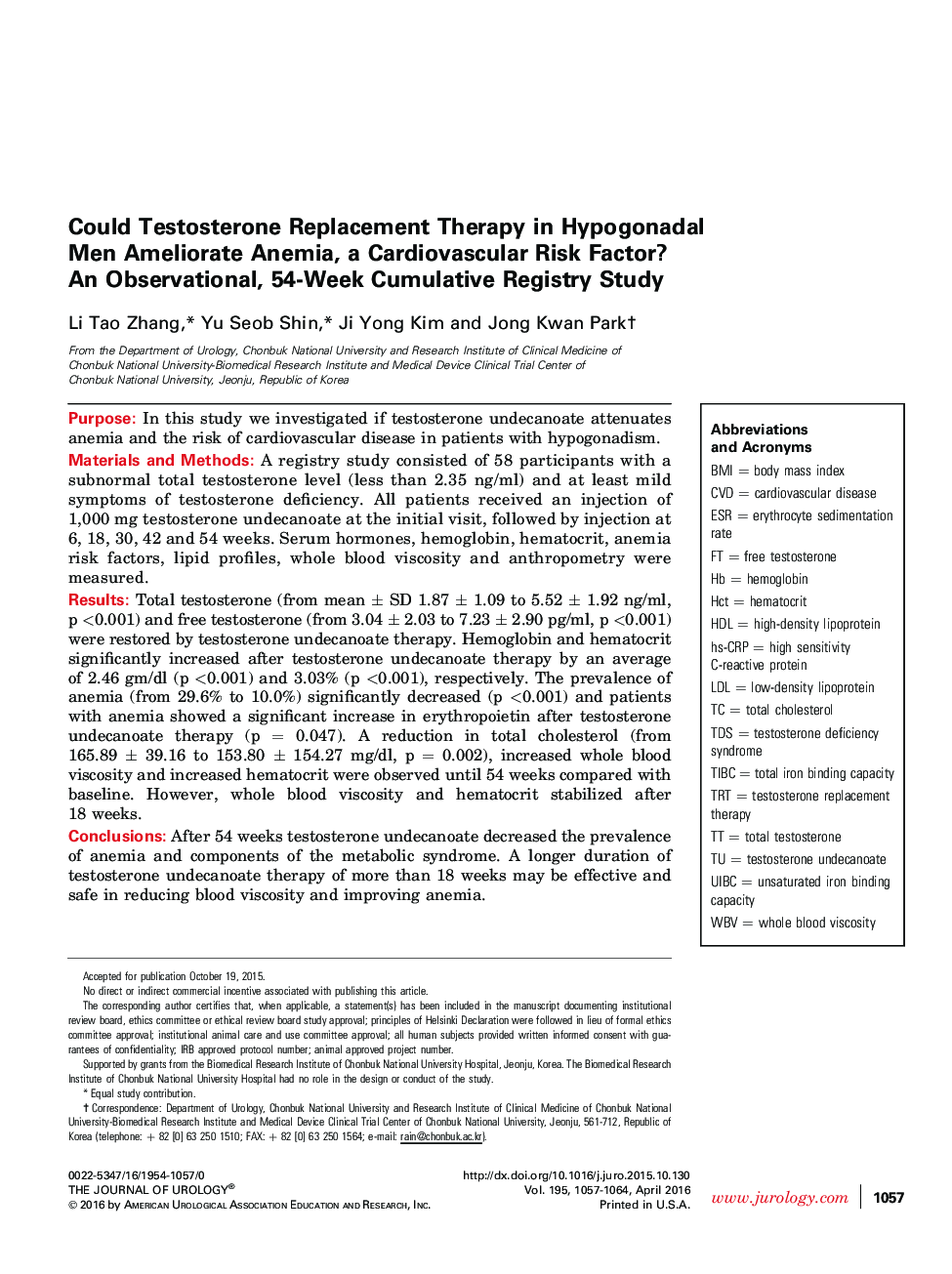| Article ID | Journal | Published Year | Pages | File Type |
|---|---|---|---|---|
| 3858579 | The Journal of Urology | 2016 | 8 Pages |
PurposeIn this study we investigated if testosterone undecanoate attenuates anemia and the risk of cardiovascular disease in patients with hypogonadism.Materials and MethodsA registry study consisted of 58 participants with a subnormal total testosterone level (less than 2.35 ng/ml) and at least mild symptoms of testosterone deficiency. All patients received an injection of 1,000 mg testosterone undecanoate at the initial visit, followed by injection at 6, 18, 30, 42 and 54 weeks. Serum hormones, hemoglobin, hematocrit, anemia risk factors, lipid profiles, whole blood viscosity and anthropometry were measured.ResultsTotal testosterone (from mean ± SD 1.87 ± 1.09 to 5.52 ± 1.92 ng/ml, p <0.001) and free testosterone (from 3.04 ± 2.03 to 7.23 ± 2.90 pg/ml, p <0.001) were restored by testosterone undecanoate therapy. Hemoglobin and hematocrit significantly increased after testosterone undecanoate therapy by an average of 2.46 gm/dl (p <0.001) and 3.03% (p <0.001), respectively. The prevalence of anemia (from 29.6% to 10.0%) significantly decreased (p <0.001) and patients with anemia showed a significant increase in erythropoietin after testosterone undecanoate therapy (p = 0.047). A reduction in total cholesterol (from 165.89 ± 39.16 to 153.80 ± 154.27 mg/dl, p = 0.002), increased whole blood viscosity and increased hematocrit were observed until 54 weeks compared with baseline. However, whole blood viscosity and hematocrit stabilized after 18 weeks.ConclusionsAfter 54 weeks testosterone undecanoate decreased the prevalence of anemia and components of the metabolic syndrome. A longer duration of testosterone undecanoate therapy of more than 18 weeks may be effective and safe in reducing blood viscosity and improving anemia.
